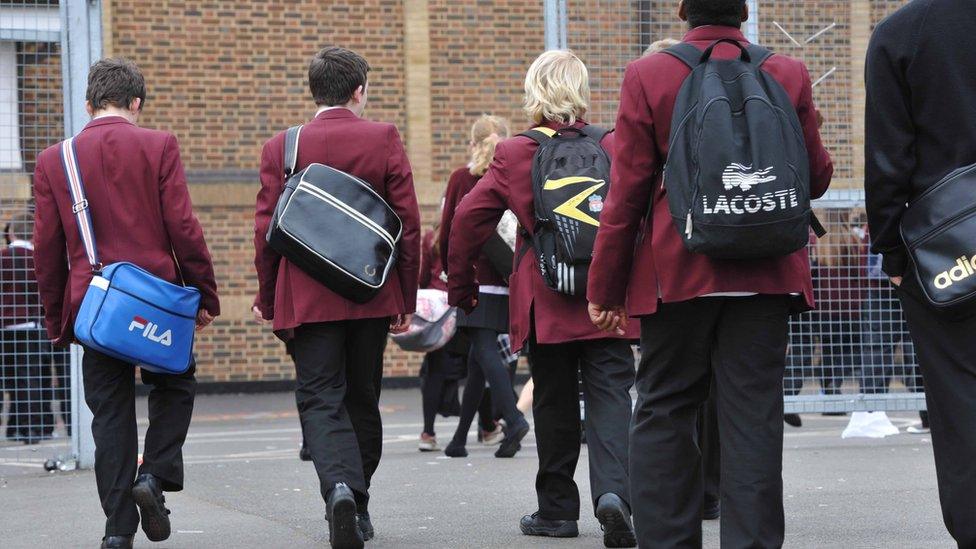Elections 2021: What is the future of Suffolk school buses?
- Published
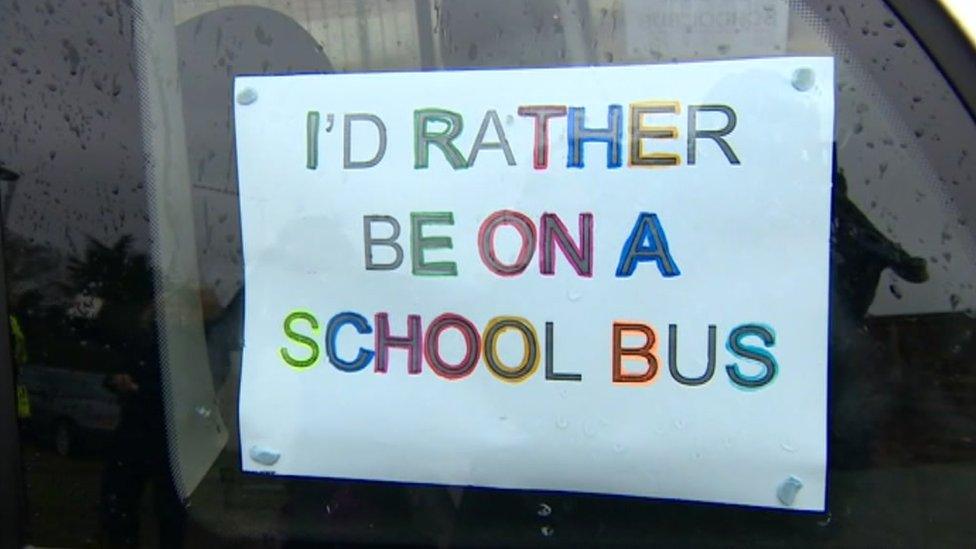
Some parents in Suffolk have to drive their children to school as they are unable to get a free bus
In the village of Orford in Suffolk a free bus takes children 12 miles (19km) to Farlingaye High School but eight Year 7 and 8 pupils have to go on a minibus, at a cost of £5 a day, because there is a school two and half miles (4km) closer.
It is due to Suffolk County County's "nearest only" policy, started in 2018, when the Conservative-run authority revised school transport arrangements.
Amongst other changes, it means Year 7 and 8 pupils in Orford would only get free transport to SET Saxmundham School.
With all seats on the authority up for election on 6 May, what is the future of school transport in the county?
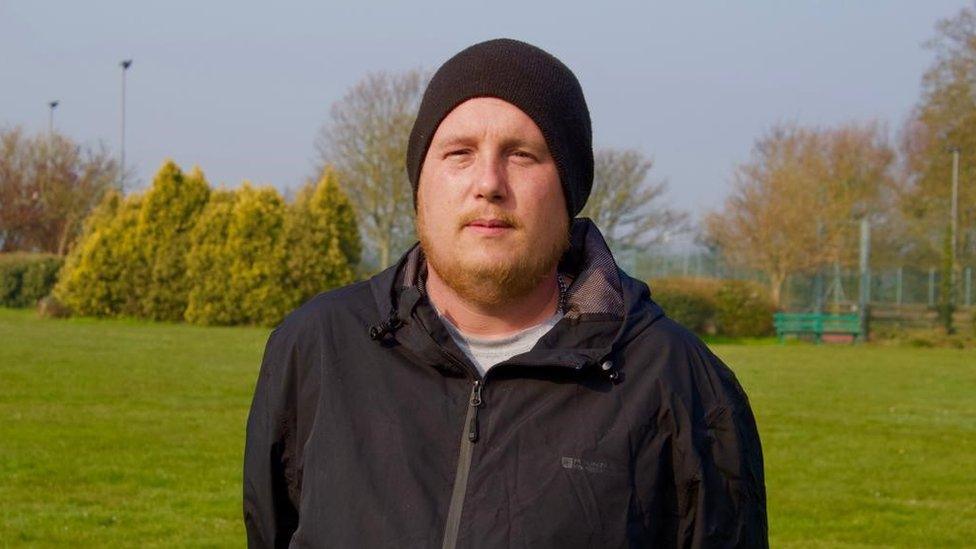
Carl Humphrey says there are other rural villages in Suffolk who have paid for minibuses to transport children to school
Carl Humphrey, who lives in Orford, has one child on the free transport and one on the paid-for minibus and says he is "disgruntled and angry".
"We can't afford to travel by car daily," he said.
"The children's education is paramount and we want the best opportunity for our children in the village."
Mr Humphrey explained the local primary school was a feeder school for Farlingaye and "there's many generations that go and continue to go to the high school".
He said he did not expect transport to be free, but wanted it to be subsidised by the council and for the authority to organise it.
"Councillors should come out and get on the bus with the children and see how rural we are," he said.
He added Orford was "one of many rural communities" that had organised their own school transport.
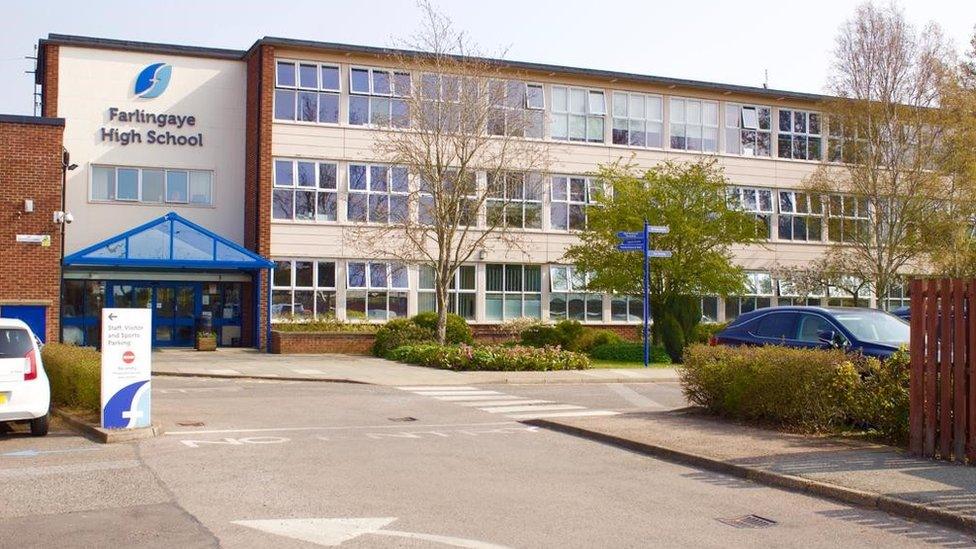
Farlingaye High School is 12 miles (19km) away from the village of Orford
Conservative Matthew Hicks, who is standing in Thredling, said as parents could choose a school which was not their nearest, the council had to "step back" from transporting those pupils.
But he said if his party remained in charge of the council the policy would be reviewed.
"We'll have a look at what works and what doesn't, so there could be tweaks," he said.
"It's about should the taxpayer in Suffolk be paying for you to go to school or just to your nearest school?
"We are always weighing up these difficult choices."
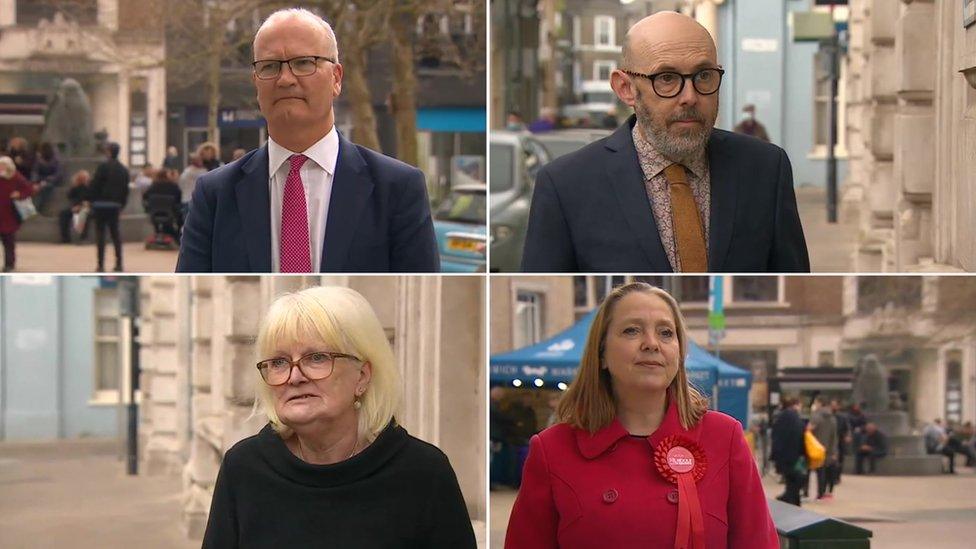
Conservative Matthew Hicks, Andrew Stringer from the Green Party, Labour's Sarah Adams, and Penny Sutton from the Liberal Democrats (clockwise)
But the opposition parties disagree and all describe the policy as a "disaster".
Andrew Stringer from the Green Party, a candidate in Upper Gipping, said: "It has split villages, even families and streets, it's absolutely ridiculous.
"We need to get children to school safely and sustainably, we have to find the money to do this."
He said school buses should be part of a "comprehensive strategy for public transport" including the county council becoming a bus operator itself.
Labour's Sarah Adams, standing in St John's, admitted school transport "has always been an issue" in Suffolk.
But she said it was "utter nonsense children are being split from brothers and sisters".
Ms Adams said the cost to the council of appeals over free places would have paid for the buses.
She said it was affordable to provide transport for all pupils and in many cases "there are spare seats on [council] buses".
"It is unfair and we would reverse it completely," she added.
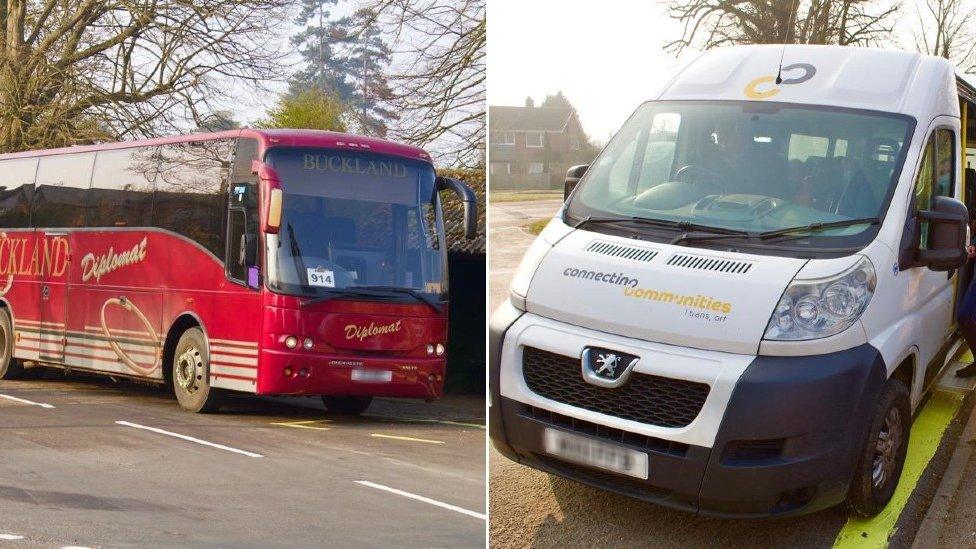
The free bus (left) and the paid for minibus (right) which both serve Orford for Farlingaye High School
Penny Otton from the Liberal Democrats, a candidate for Thedwastre South, said she had "never known so many parents up in arms".
She said about 700 parents were paying for transport to secondary schools "they were always under the impression they would go to", and receive council transport.
The Lib Dems would "consider" reversing the policy, she said, but added school transport was "a necessary expense".
She said: "Having parents driving their children is against our commitment to the climate emergency."
Full details of candidates for Suffolk County Council can be found on its website, external.

ENGLAND'S ELECTIONS: THE BASICS
What's happening? On 6 May, people across England will vote for new councillors, mayors and police and crime commissioners. Register to vote here, external.
Why does it matter? When parties win control of a council, they decide policies for your area which could affect services ranging from social care to rubbish collection. Find out more about what councils do.
Who can vote? Anyone who lives in England, is registered to vote and aged 18 or over on 6 May is eligible. Find your local election here.


Find BBC News: East of England on Facebook, external, Instagram, external and Twitter, external. If you have a story suggestion email eastofenglandnews@bbc.co.uk, external
Related topics
- Published4 September 2019
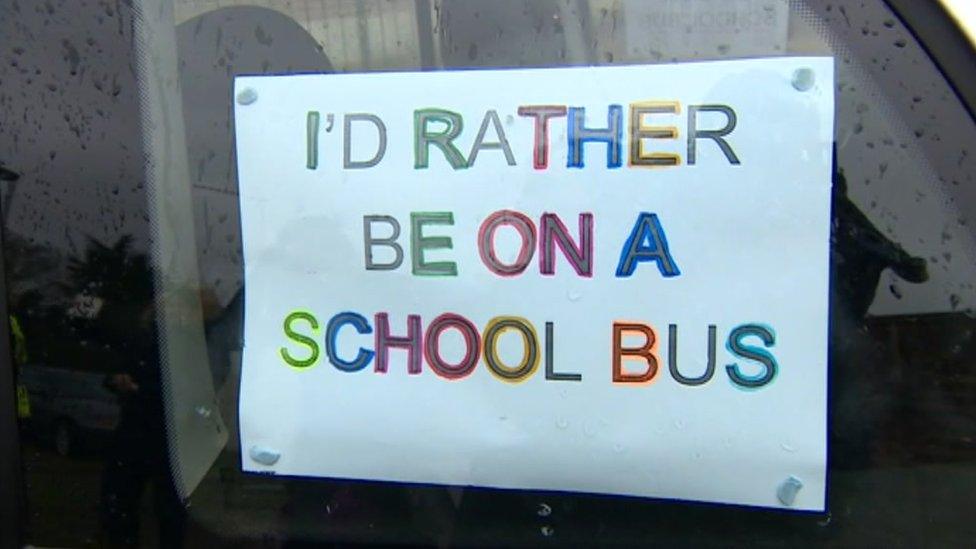
- Published9 November 2018
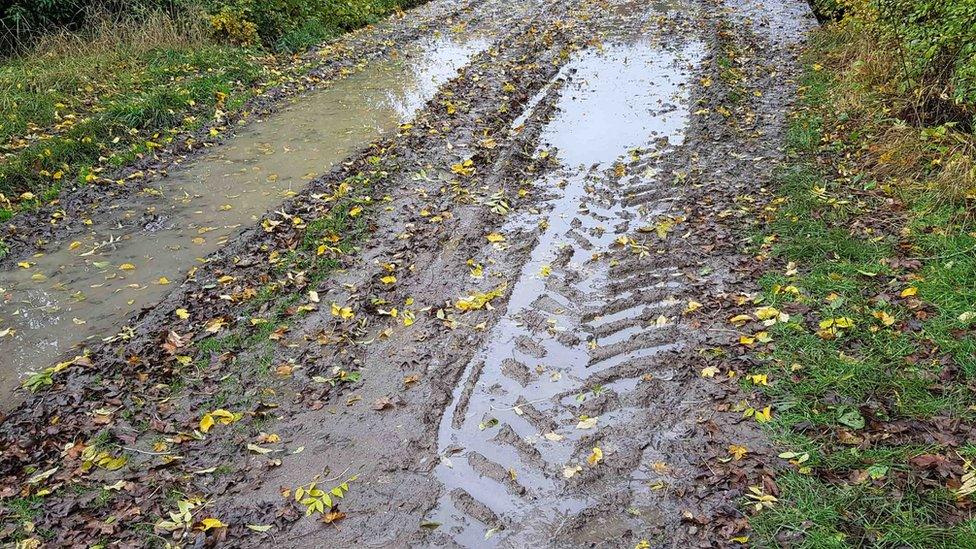
- Published24 May 2018
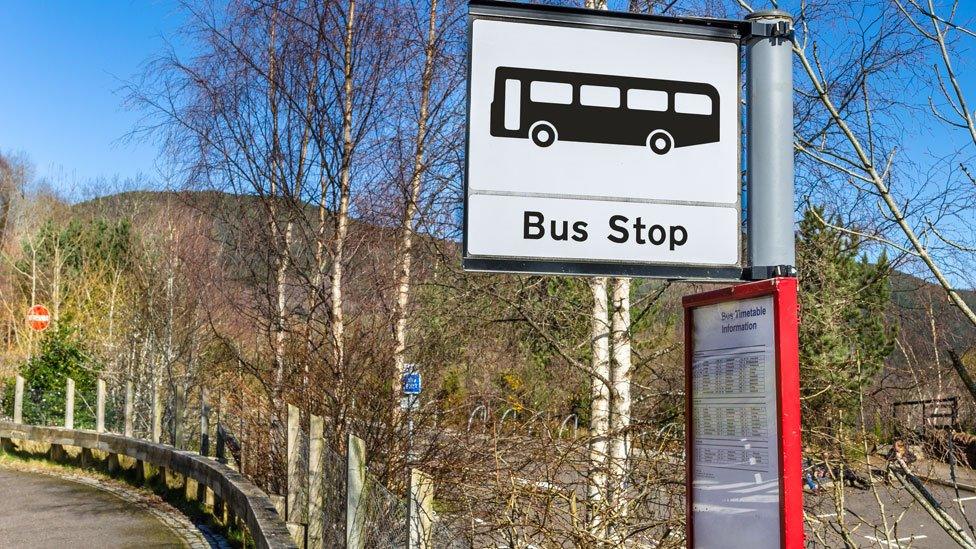
- Published17 March 2017
